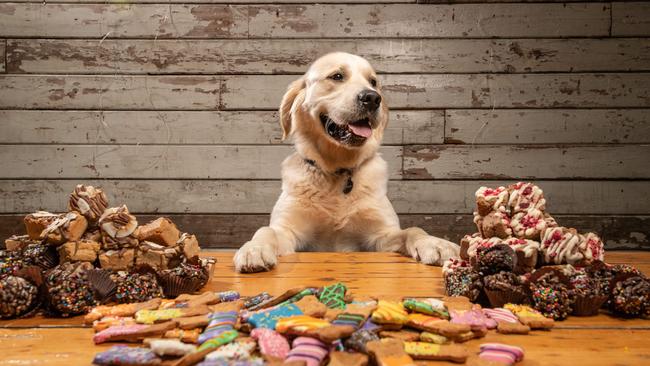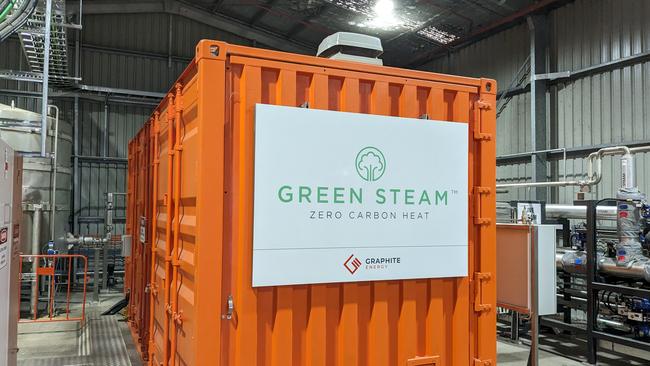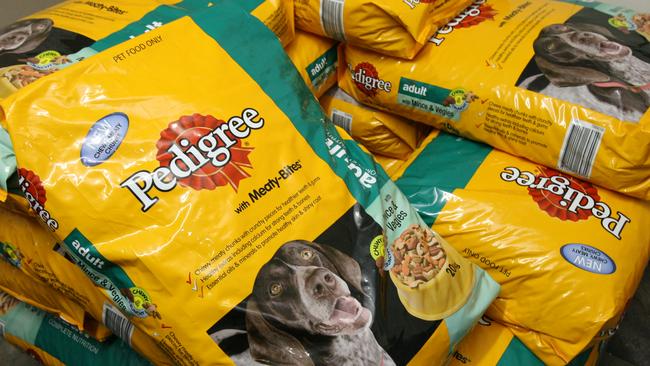How pet food is becoming greener as Mars invests $1bn globally to fight climate change
Owning dogs can be as harmful to the environment as flying in a private jet — but one major manufacturer is serving up a petfood that will make man’s best friend eco-friendly too.

Dogs have been man’s best friend for millennia and during the pandemic their popularity soared, with pet ownership surging to record levels.
But having a pooch can be as harmful to the environment as flying around in a private jet.
Patrick Hanson, chief executive of Luxaviation, made the claim last year, saying one of his customers produces about 2.1 tonnes of carbon emissions a year — around the same level as someone who owns three pet dogs.
While environmentalists have long targeted farmers and their methane-belching livestock, advocating more vegan-style diets or seaweed supplements to stop cows flatulating as much — Fido, Rover, Lassie and other hounds are now in the gun.
To this end, Mars Pet Care — makers of brands including Pedigree, Whiskas and Optimum — has launched an Australian first “green steam” project at its factory at Wodonga, which has slashed the amount of energy it uses to manufacture pet food and its greenhouse gas emissions.
The green steam process uses solar power to generate and store heat — with temperatures rising up to 700 degrees celsius. This generates steam used to cook pet food. The system uses stored thermal energy, giving Mars access to the “green steam” 24/7.

The company has so far slashed its gas use by about 20 per cent with a corresponding reduction in emissions, making Meaty Bites greener than they’ve ever been.
Mars supply quality lead Paul Matuschka said the green steam project aimed to “accelerate Mars’s decarbonisation journey”, with the food giant saying it’s on track to halve its carbon emissions by 2030 and achieve net zero across its “full value chain” by 2050.
This includes all scope 3 emissions, such as those created by agriculture and Mars’s suppliers.
To achieve this goal, Mars will invest more $1bn globally over the next three years and “continue to commit financial resources as needed until net Zero is achieved”.
“There is a lot of interest, particularly in this (green steam) project,” Mr Matuschka said.
“It’s one of several projects and initiatives that we are trying to accelerate our decarbonisation journey here to show that all decarbonisation is possible within one manufacturing site.”
Graphite Energy has supplied Mars’s electric thermal energy system, which has replaced up to 9000 gigajoules of natural gas a year. It uses a graphite battery, which has a higher energy density, faster charging time and longer life cycle than a lithium battery.

“We’re using that to store the electricity energy as heat into the graphite block. And then we run water through the graphite unit — you can either do that when you’re charging it or decoupled from charging — and that generates the superheated steam, so up to about 700 degrees,” Mr Matuschka said.
“They (Graphite Energy) needed a partner like Mars to prove commercialisation. And the intent of that is a mutual benefit. Graphite Energy gets integration into a live manufacturing environment with the technology and Mars — including Pet Nutrition Australia, Mars Australia and globally Mars Incorporated — gets exposure to technology.
“Through our assessments and learning of this project we’re seeing it as a significant component of our decarbonisation strategy globally and we’ve moved into looking at how we accelerate that and the next stages of this deployment.”
It comes as Mars announced mid last year that it will invest $112.6m in the Wodonga plant, installing two advanced single serve pouch lines, taking total annual capacity to 290 million pouches. This will create 60 jobs.
In March 2021, Mars Australia — which also owns brands including Masterfoods and M&Ms — began transitioning to renewable energy to offset 100 per cent of the power at its six factories and two offices.
Mars Food Australia general manager Bill Heague said at the time: “We know consumers want to see action on climate change”.
“With the majority of Mars products enjoyed by Aussies being made here, our transition to renewable electricity not only makes sense for our business and the planet, it also means Australians can feel even better about buying Mars products — and that is something I am personally thrilled about.”
Meanwhile, Mars’s global vice president of sustainability Kevin Rabinovitch, said “climate change is one of the most urgent issues of our time”.
“We recognise Mars has a responsibility, and opportunity, to improve our impact on the planet.”



